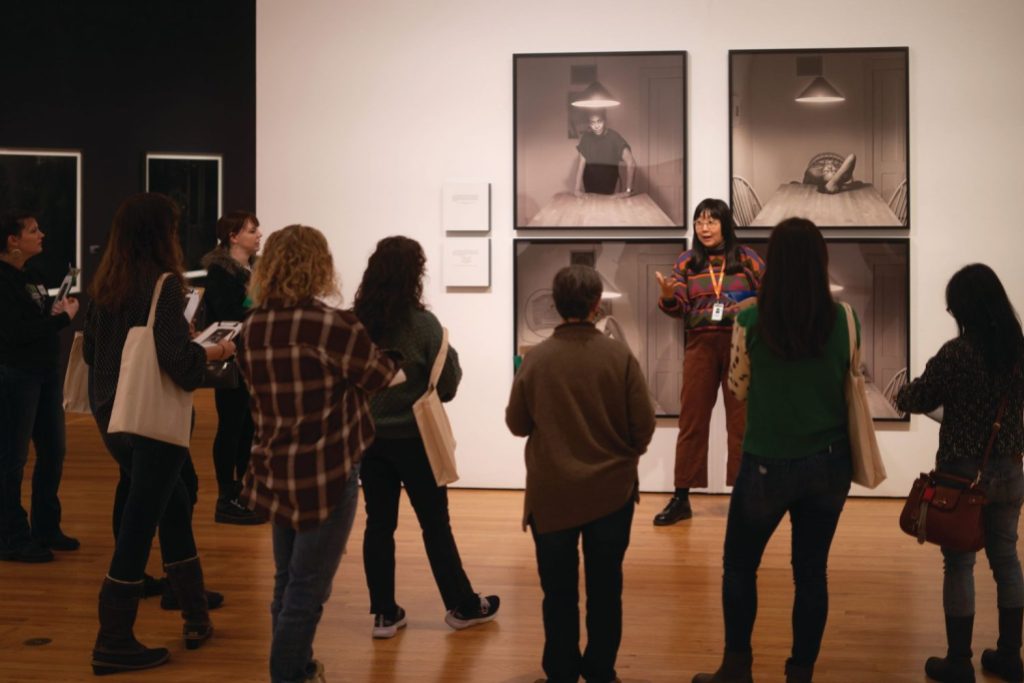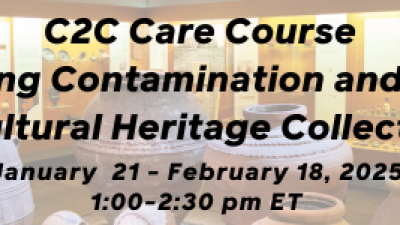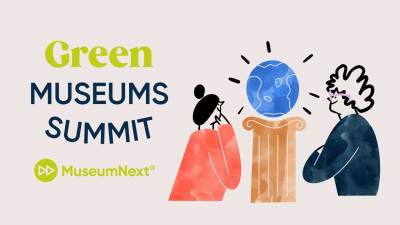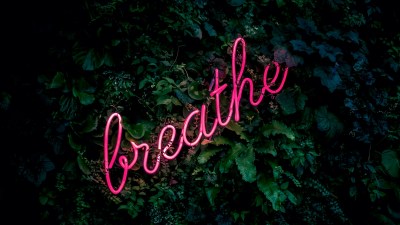
This article originally appeared in Museum magazine’s July/August 2023 issue, a benefit of AAM membership.
As museums focus on community engagement, museum educators are more important than ever.
After a once-in-a-century pandemic, a historic point of inflection regarding racial justice, the “great resignation,” and an ongoing reexamination of labor practices, museum educators are once again reassessing our roles. While museum education has always been important, its value came into stark relief during the pandemic. What is less clear is whether the field will acknowledge and support the indispensable role of educators in securing the public’s trust and ensuring the ongoing relevance of our institutions.
During the pandemic, educators were responsible for transforming place-based programs into virtual spaces and by safely bridging physical barriers. This agile reimagining of museum teaching saw educators teaching on new virtual platforms, producing videos with our phones, learning how to podcast and make TikTok videos utilizing gallery content, creating outdoor exhibits and programs, mailing teaching materials to rural communities, and designing and posting lessons for parents to do with their children at home. Typical of educators, we adapted quickly and continued connecting with our audiences and ensuring museums remained accessible and impactful.
In the wake of this volatile period, we have redoubled our efforts to offer experiences that resonate with what people are struggling with or are curious about. Innovative programs developed by creative and adaptable education teams include opportunities for civil discourse, programming for seniors with dementia, social-emotional learning-based tours, and new programs co-authored with Indigenous communities. Museum educators are responding to social and political events that demand we pay closer attention to issues of racial injustice, examining the historical record, addressing the urgency of an ever-warming world, and surfacing issues of representation and colonial practices in museums, just to name a few.
Museum leaders across the field commonly say that “education is all of our jobs,” regardless of our role in the organization, primarily because of our missions. In this post-pandemic world, it is time for museums to embrace educators’ structures and processes to more accurately reflect a shared focus on education. From where we sit, the success and sustainability of museums will largely depend on it.
Our Current Challenges
Those of us who work directly with the public are grappling with the political incursion into the educational sphere: threats to free speech and expression, book bans, the demonization of immigrants, challenges to reproductive rights, violence against minority populations, a growing wealth gap, and the restricting of bodily autonomy for LGBTQIA+ people through legislation. The public is looking for institutional reactions to these issues, and museum educators can respond in ways that bridge collections and communities. Museum educators continue to invite visitors into dialogue, use objects and artifacts to look critically at history and institutional practice, and provide resources to develop essential skills like critical thinking, observation, and evidence-based persuasion.
Our work is increasingly taxing and rife with new challenges. Although museums have always had to navigate controversial issues, new levels of political extremism require an increased commitment to sharing accurate, evidence-based information. Furthermore, along with expectations that staff be culturally responsive, training volunteer educators to both value and adopt these practices is a massive undertaking. If these challenges weren’t enough of a learning curve, educators also continue to struggle to do more programs with fewer resources (like bringing back in-person programming while retaining the slate of online programs initiated during the pandemic).
In addition, museum educators and other staff are questioning labor practices through groups like Change the Museum, Museum Workers Speak, and MASS Action. Addressing labor inequities has been difficult, especially in light of the pandemic when so many institutions scaled back education and other frontline staff, according to the 2021 study by NAEA and Randi Korn & Associates. As a result, many educators are demanding a new approach to their work—one built less on sacrifice and more on balance and right-scaling, livable wages, and transparency.

Moving to the Forefront
Despite the volatility of the past several years, museum educators remain poised to meet today’s challenges through their commitment to shared authority and audiences, expanding communities of practice, and the assessment and self-reflection that is embedded in our discipline. Today, we are more focused than ever on working in ways that are symbiotic, reciprocal, and inclusive, and center marginalized voices.
Museum educators are born collaborators, working alongside teachers, volunteers, health care professionals, scholars, community groups, and others to create programs that engage visitors. The museum workplace needs people who can navigate difficult conversations, can think critically about programming, and are engaged in communities of practice to support innovation, inclusive partnerships, and impact in the interest of relevance, fundraising, and organizational culture.
In our audience-focused roles, we create programs that can engage people in dialogue. We directly address their needs and questions and respond with urgency to issues that arise. In short, our work represents our institutions’ missions in action.
It is time for the field to reaffirm the importance of museum educators and to reorganize accordingly. More museum leaders should emerge from our ranks, more resources should be put into the human resources of education departments, and more effort should be placed on recruiting, training, and retaining a diverse group of superstar educators who sustain relationships with the most important constituents our institutions have: the public.
An Educator Consortium Forms
Supporting teachers is a hallmark of museum education work. At a summit on teacher professional development in 2019, researchers from Ford’s Theatre, Monticello, Mystic Seaport, and Mount Vernon shared their findings on recommended practices. After the pandemic exposed an increased need for communities of practice that span geographical and institutional divides, museum educators who had participated in the summit created an online community, Teacher InSites, to expand educator networks and provide museum resources and pedagogy for classroom teachers. The online work has evolved to include an annual hybrid conference called RevEd and was featured in the 2022 book Bringing Teachers to the History Museum.
Resources
“The Partisan Divide,” TrendsWatch, 2023
Wilkening Consulting and AAM, Museums and Trust, Spring 2021
Lora Cooper, Linnea Grim, and Gary Sandling (Eds.), Bringing Teachers to the History Museum, 2022
American Alliance of Museums and Wilkening Consulting, National Snapshot of COVID-19 Impact on United States Museums, November 2020








Comments